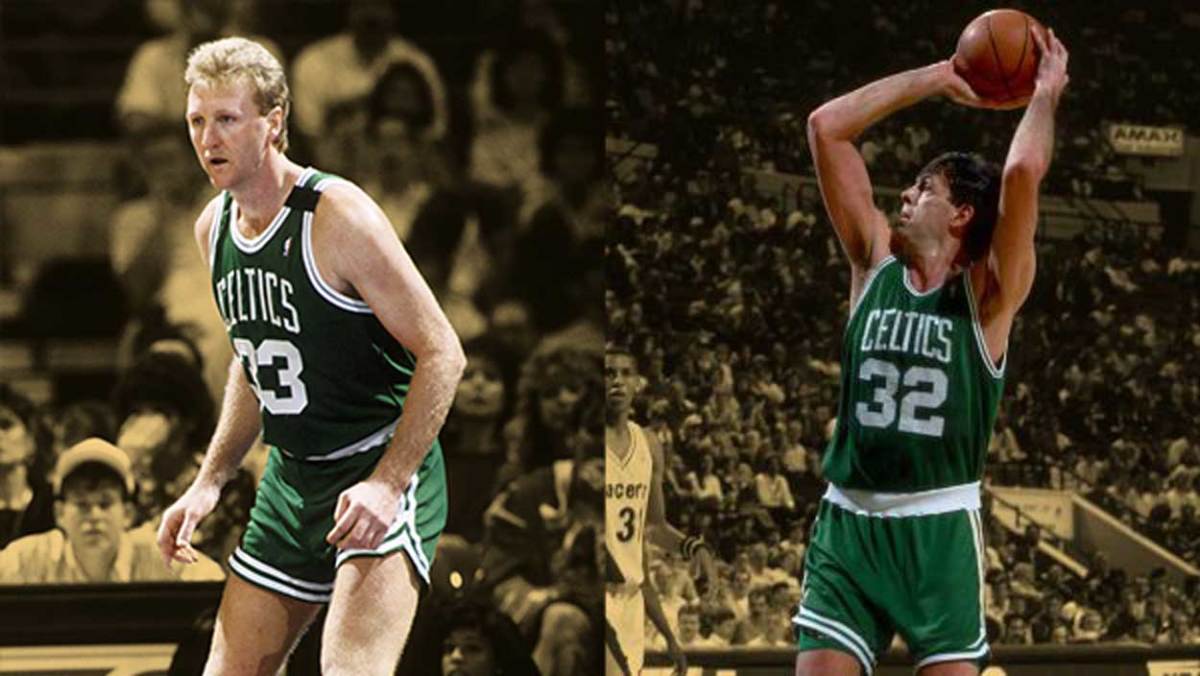“That definitely did hurt Larry and I’s career” – Kevin McHale says Larry Bird would have played a lot longer if Len Bias didn’t die originally appeared on Basketball Network.
In 1986, the Boston Celtics were a dynasty in mid-flight. That team, a blend of hard-nosed veterans and perfectly placed role players marched through the postseason with a 15-3 playoff record and finished with a staggering 67-15 regular season mark.
Advertisement
At their core were Larry Bird, Kevin McHale and Robert Parish — three Hall of Famers playing at the peak of their powers. But buried beneath the banner-raising and celebratory confetti of that unforgettable season was a tragic turn that altered everything that came after.
Bias’ death
Just two days after that championship run, the Celtics selected Len Bias with the No. 2 overall pick in the NBA Draft. A 6’8″ marvel from Maryland with elite athleticism and a silky mid-range game, Bias was more than a promising rookie, he was supposed to be the bridge to Boston’s future.
What came instead was heartbreak. Bias died of a cocaine overdose less than 48 hours after hearing his name called by Red Auerbach. And in that instant, the Celtics’ carefully built succession plan crumbled.
Advertisement
“It was so depressing, because that’s all everybody talked about,” McHale said. “We won a championship, and all everybody talked about was poor Lenny … what a shame, and that definitely did hurt Larry and I’s career.”
The celebration that should’ve marked the Celtics’ coronation as one of the greatest teams of all time was instead shrouded in mourning. What was meant to be the start of a new chapter for the franchise became an abrupt and permanent loss of direction.
For McHale and Bird, both dealing with mounting injuries, the presence of Bias was expected to provide relief. His arrival would’ve allowed them to reduce minutes, manage wear and tear and perhaps stretch their primes a few years longer. Instead, Boston entered the following season burdened not only by grief but by the harsh reality of an aging core forced to carry even more weight.
Advertisement
Bias had averaged 23.2 points and 6.4 rebounds per game as a senior at Maryland, earning two ACC Player of the Year awards. He wasn’t just athletic. He was polished. He had the kind of two-way versatility that made scouts giddy — able to guard multiple positions, knock down open looks and finish in transition like a gazelle.
The missing piece in Boston’s twilight
Between 1981 and 1987, the Celtics reached the Finals five times, making deep postseason runs year after year.
Advertisement
Bird averaged over 38 minutes a game in each of those seasons and McHale, known for playing through pain, developed a reputation for sacrificing his body on both ends of the floor. By the late ’80s, the injuries had begun to stack up: Bird’s back was deteriorating and McHale’s foot injuries had become chronic.
“We win a championship, draft Len Bias — and the kid was just a stud, he was a horse,” McHale said. 6’8″ but a great body, strong, pogo stick and had a nice touch. You look at that and go, ‘Oh, wow, fantastic. And at that point, we had a hell of a run.
“You look at our ’81 team all the way to ’85, we’re in the finals all the time, we’re playing late in the season … I’m tired, my body is beat up, and I think he would have helped a lot with that.”
Bias was built to be the heir, not just in a symbolic sense. His presence would’ve allowed Boston to stagger rotations, giving the stars the rest they had earned without sacrificing production.
Advertisement
He could have shifted the balance of power in the Eastern Conference during the rise of the Bad Boy Detroit Pistons and delayed the Celtics’ decline in the face of that new challenge.
Boston, after all, was still talented, but no longer had the legs to keep pace. In 1987, even without Bias, they managed to claw their way to another Finals appearance, losing to the Los Angeles Lakers in six grueling games. It was their last trip to the championship round during the Bird era.
The drop-off wasn’t immediate, but it was irreversible. And with each passing season, the void Bias left became more apparent not just as a talent, but as the one player who could’ve rebalanced a team that had given everything to its peak years.
Today, discussions around Bias still carry that sharp edge of loss, but they also reflect what might have been, not just for him, but for legends like Bird and McHale whose careers may have burned a little brighter, a little longer, had he been there to carry part of the load.
Advertisement
This story was originally reported by Basketball Network on Jun 20, 2025, where it first appeared.
